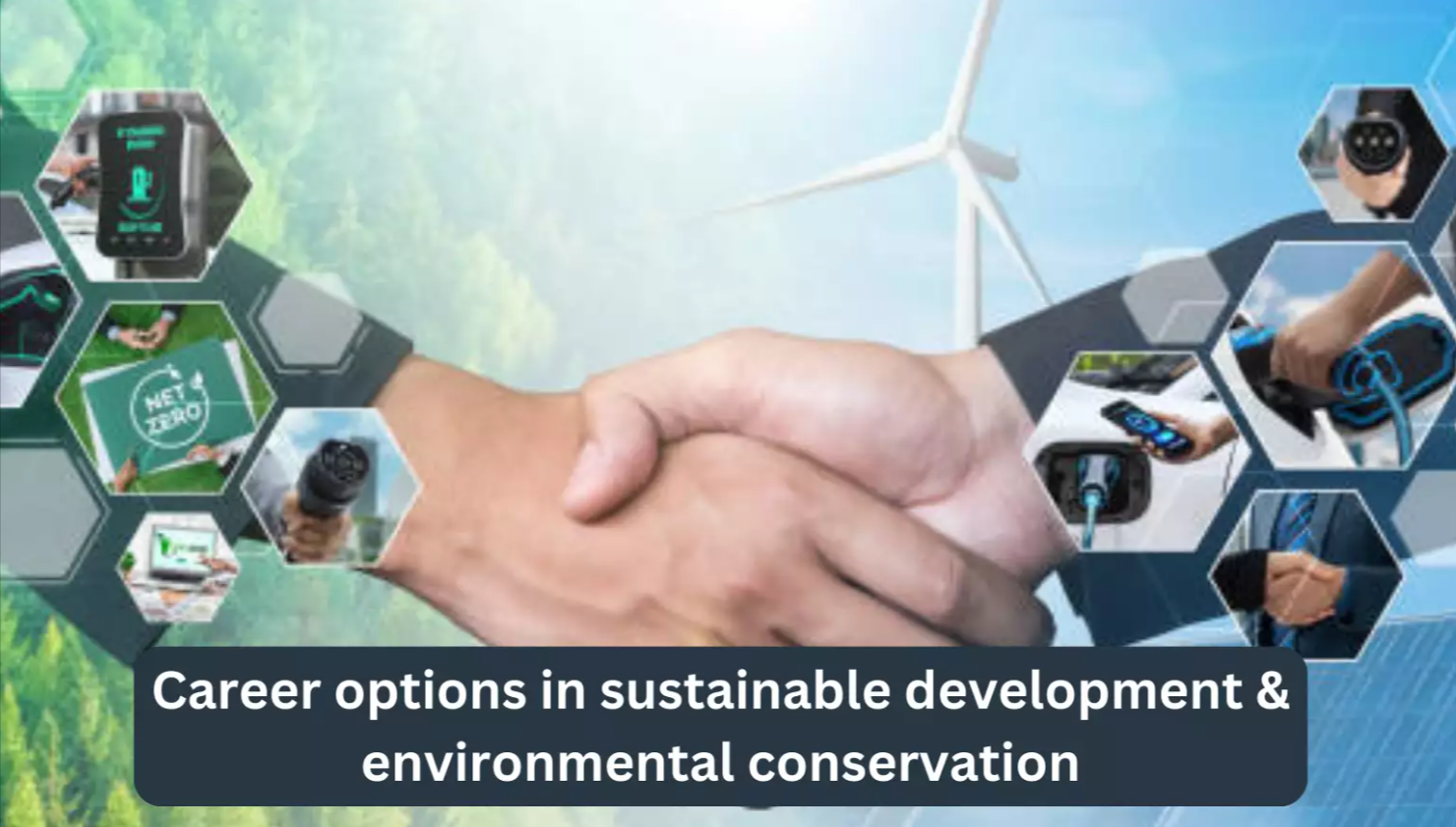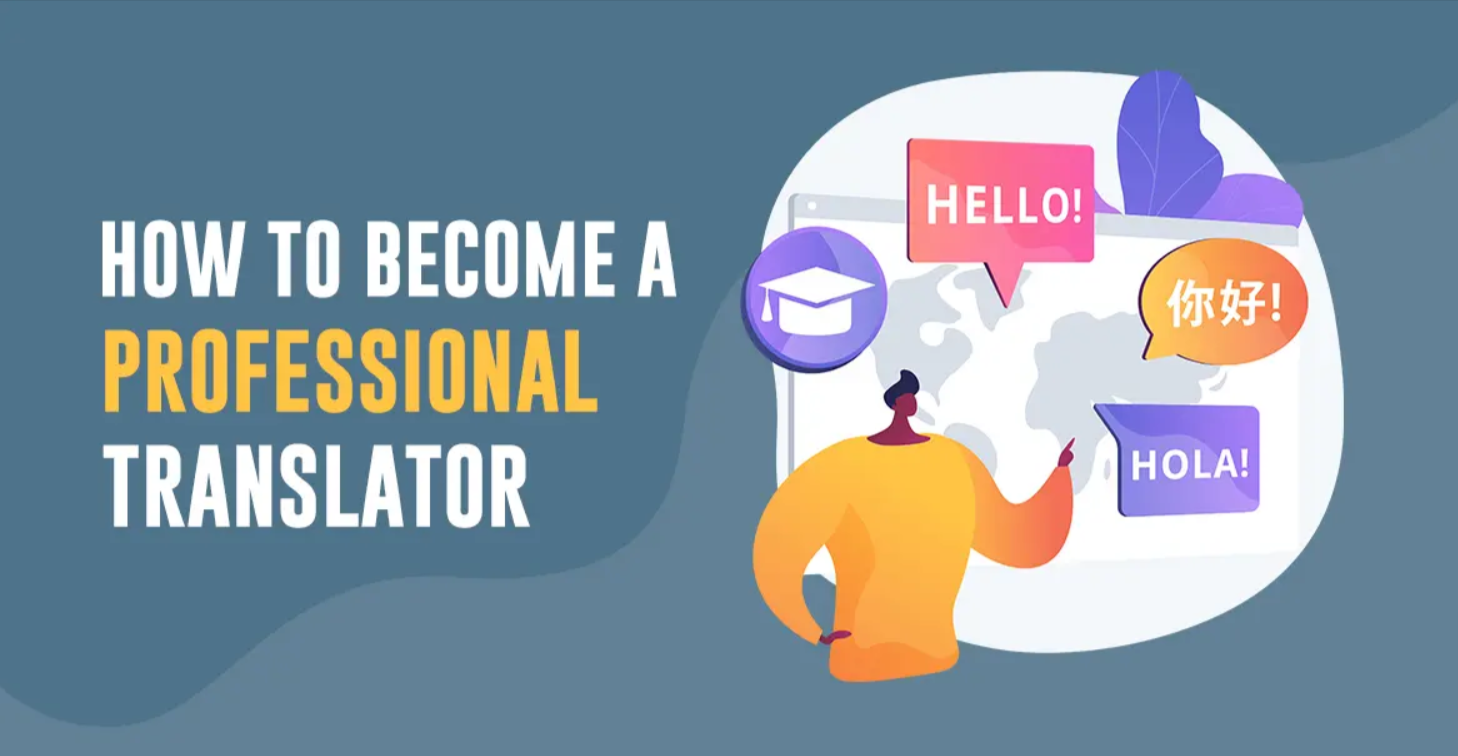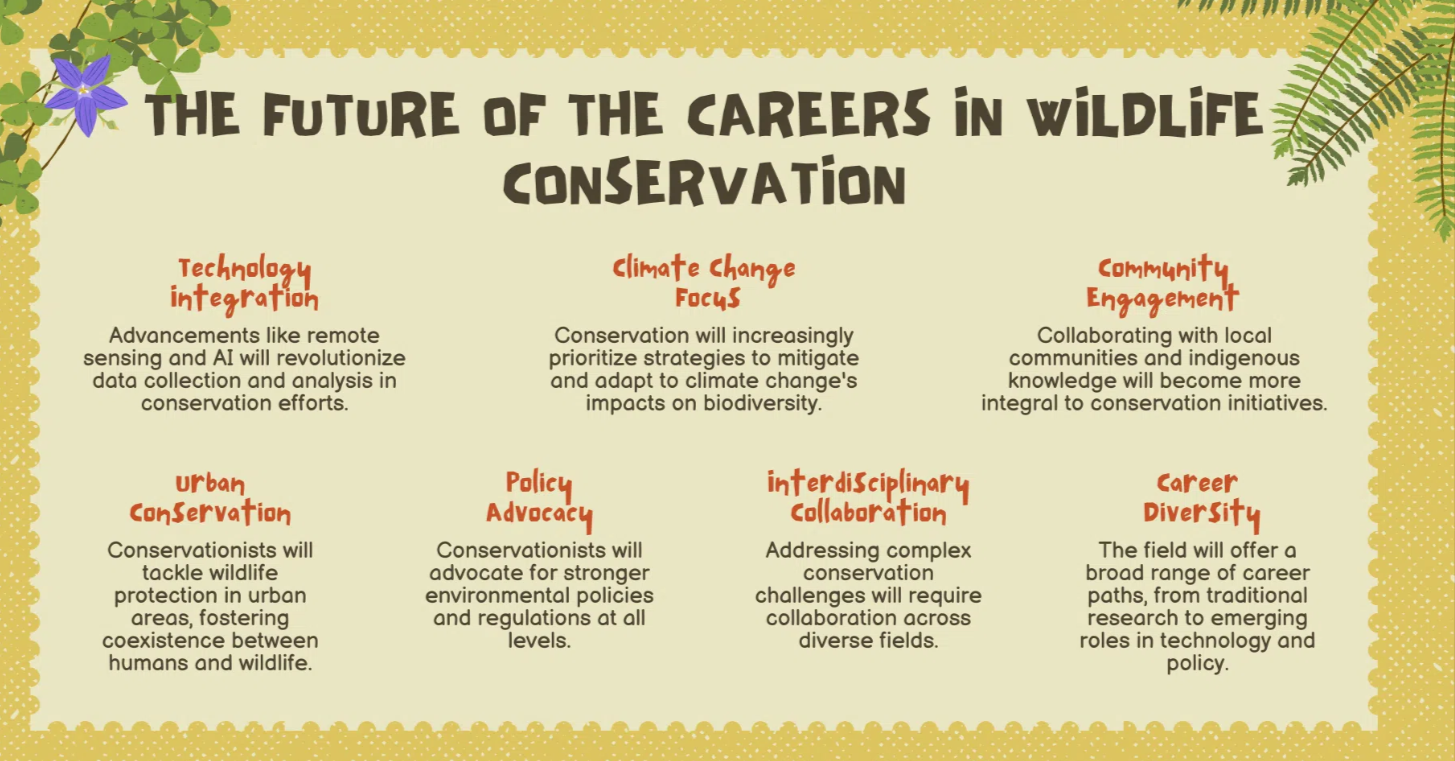How to Build a Career in Environmental Conservation

Environmental conservation goes beyond merely protecting nature—it is a way to protect future generations. We have been experiencing climate change, deforestation and pollution and the need for people from this field has never been higher. For nature lovers who want to make impact, environmental conservation career is the way to go.
But how do you make this passion into a career that you love? In this guide, we will go through how to get started, what skills you need, and what opportunities you have in the field.
What Is Environmental Conservation?
Environmental conservation is the reasonable utilization and safety of the typical assets to make them available to the upcoming generation. It aims at conserving the ecosystems, saving animals from extinction, controlling pollution, and sustainable practices.
Environmental professional levy their skills to research, educate, develop policy as well as take direct action to manage environmental concerns. Be it forestry job, ocean job, or even an everyday city job; it all plays its part in ensuring the earth remains healthy.
Here are a few reasons to take up a career in environmental conservation.
For many people working in the field of environmental conservation, they can enjoy the personal fulfillment and career advancement that comes with having a career that is based around something they are passionate about. So, here are some of the reasons why this profession is rewarding:
- Do Good: You will have a hand in saving the world and providing a better future to all beings.
- Vast and Varied Career Options: Career choices cover a range from field research to environmental law, encompassing career options within and beyond the environmental community.
- Stability in Employment: With the escalating importance of environmental issues, there is an increasing need for experts in this field.
- Ongoing Education- You will learn more about nature, ecosystems, and new remedies for climate change.
How to Build a Career in Environmental Conservation
A career in environmental conservation doesn’t just happen overnight; it requires planning, commitment and love for the outdoors. A step-by-step process for getting you started would look like this:
1. Know What You Like and What You Know
Since environmental conservation is a wide area of work, it is crucial that you may recognize what area is of your utmost interest. Do you feel good about yourself while working in an outdoor area? If you feel strongly about wildlife protection, climate change, or sustainable development, Here is just a selection of popular focus areas:
- Wildlife conservation
- Climate change research
- Environmental education
- Marine conservation
- Environmental policy and law
- Sustainable agriculture
Knows you have to choose how you will want to learn & what you will pursue in your career.
2. Pursue Relevant Education
Formal education will be needed to establish a career in any field of environmental conservation. You can begin with a relevant degree based on the field that interests you. Here are some of the more standard routes of education:
- Bachelor Degree: A degree in environmental science, biology, ecology, forestry, or geography is a useful start.
- Graduate Degree: A master’s in areas like environmental management, conservation biology, or environmental policy may be useful for more coupled positions or even management.
- Certifications —. It is preferable to pursue short duration certifications on the subjects like environmental impact assessment, wildlife management, or geographic information systems (GIS) to obtain better skills and employability.
3. Gain Practical Experience
To gain hands-on experience that is vital for a conservation career. So here is one way you can learn about it by doing:
- Internships: Seek internships at environmental groups, government bodies, or research facilities.
- Volunteering: Participate in any conservation projects, tree planting, wildlife protection and other volunteer events near you. This helps you build your network and gain hands-on experience.
- Fieldwork: Get hands-on experience working on research projects, ecological surveys, or habitat restoration projects.
4. Develop Key Skills
In environmental conservation, some technical and soft skills are essential for success. Below are some of the key skills that you can work on:
Research: Whether it encompasses fieldwork, data collection, analysis, or another approach, this helps with environmental issues.
They include: Conference SkillsWriting reportsEducating communities
Solution-oriented: coming up with groundbreaking approaches to environmental issues.
Working in teams — scientists, some policymakers, and local communities
Technical Skills – Familiarity with GIS, data analyse program, and environmental monitoring devices.
5. Build a Professional Network
Networking can be an important part of your career advancement. This is how you can network in the environmental sector:
- On-site conferences: Environment workshops, seminars and networking events
- Membership in professional organizations, groups such as the Society for Conservation Biology, or The Wildlife Society, provide networking opportunities, resources, and in some cases job boards.
- Linkedin: Join other professionals and organizations in the conservation space
6. Search for Employment Positions in Environmental Preservation
After getting the right education and experience, you are able to apply for jobs. Here are E BiotechnologyExplanation·FollowPublished in Embedded bibliography Suggestions for you. Some of the usual job profiles in this field are —
Conservation Scientist means research done to safeguard ecosystems and natural resources
Wildlife Biologist: Wildlife Biologist focuses on animals and their environment to ensure biodiversity.
Environmental Educator: Educates communities on sustainability and conservation practices.
Marine Biologist: Specializes in ocean ecosystems and marine wildlife.
An Environmental Consultant: Works with companies to help them lessen their environmental footprint.
Policy Analyst → A specialist in creating environmental policies or laws.
7. Opportunities for career advancement
Once you have gained some experience, you will find a career advancement ladder. Below, a few suggestions for growing in the field.
- Be Niche: Do a specific thing, like protecting endangered species or helping populations adapt to climate change
- Obtain an Advanced Degree: A master’s or doctorate can help you in obtaining a senior research position or a higher level academic job.
- Management Positions: As you gain experience, you can take on management roles, guiding teams and conservation initiatives.
- Consultancy: Seasoned consultants can operate as independent consultants to governments, NGOs or corporations.
Environmental Careers: Challenges
Although a rewarding career, it has its challenges as well:
- Outdoor Work: A lot of conservation jobs involve working outside, and sometimes it requires working in the field during difficult conditions.
- Funding Problems: Most projects rely on grants and charity donations which may be quite competitive.
- Emotional Drain: The stakes in environmental collectives can be high, and exposure to issues around habitat loss or endangered species is emotionally taxing.
But with passion and perseverance, these can be overcome—and the thrill of effecting real change is worth the trouble.
Relocate or Work in Other Fields: Be Adaptive
- Keep Upgrading Yourself: Attend workshops, join online courses or earn more certificates to broaden your skill set
- Have Passion: If you care about being sustainable, nothing will hold you back from doing the right thing, even when the going gets tough.
The Takeaway: Change Begins With You
Pursuing a career in environmental conservation is a lifestyle choice driven by passion, dedication, and a desire to save and protect the Earth. Providing an opportunity to be involved in projects that matter, make a difference on a global scale, and bring awareness to the communities around you.
If you get the right education, practical experience, and truly want to see a difference in the world, you can make a difference in creating a sustainable and healthy planet for generations to come. Be it conducting research on wildlife, teaching the kids of the future, or inspiring a new environmental policy, every little thing helps.



